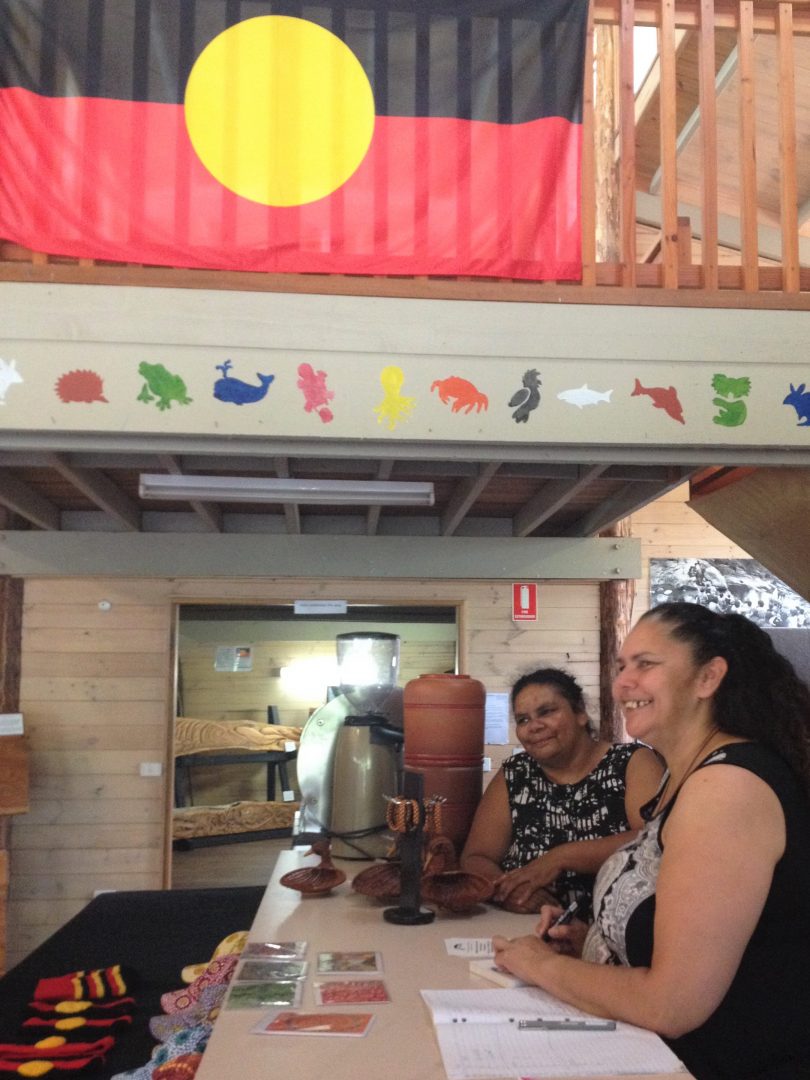
Maria [front] and Alison Walker at the counter of the newly opened Umbarra Cultural Center over the weekend. Photo: Elka Wood.
“We’ve started a fire,” Maria says from behind the counter “to motivate the community and bring it back to life – to create meaningful work.”
After dashing off a proposal to Merriman’s Land Council – which owns the land and buildings, the sisters have worked to clean up and restore the building and fill it with art once again.
By January 5, over a hundred people came through the doors of the art gallery and museum, which features Alison’s art as well as other Indigenous artists.
People trickle in through the big doors and Alison greets them, asking where they come from and showing them her art.
“The art just started coming out of me a couple of years ago,” she says, laughing “and now I just can’t stop. I get totally wrapped up in it.”
With the support of their community, Merriman’s Land Council, South East Arts, Eurobodalla Shire Council and the Red Cross, Alison and Maria have achieved their first goal – opening the doors.
But the Walker sisters have big dreams and high hopes for the centre becoming a place where you can relax on the big veranda with a coffee and watch spear and boomerang throwing lessons, take a tour through a bush food garden or eat oysters from the lake as Yuin people have done for thousands of years.
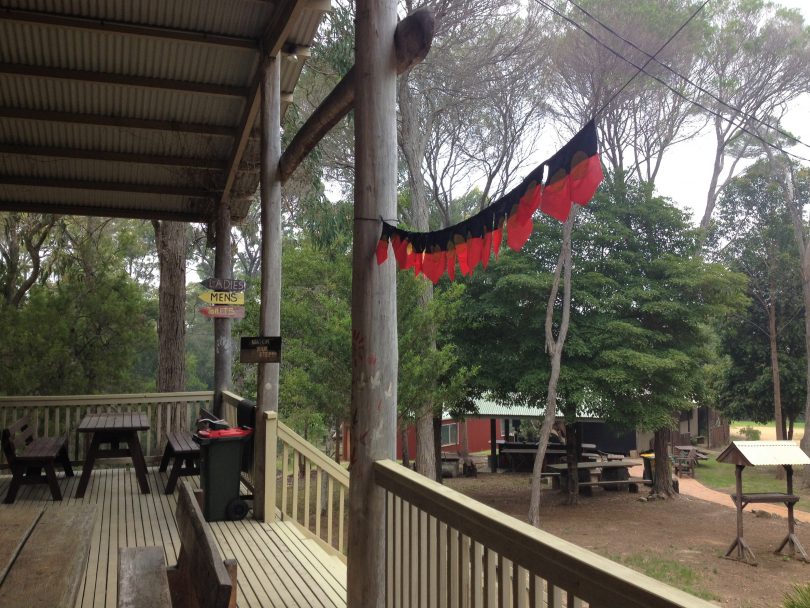
Umbarra Cultural Center has opened its doors to the public for the first time in 13 years. Photo: Elka Wood.
The Walkers are black duck women and their people have lived on Wallaga Lake as long as they can recall – the museum is a window into their lives, from early days of living from the land to the era of their terrifying school days, filled with racism.
“I’ve still got that fear, you’d think the teachers would have helped, but they were worse than the kids,” Maria says, looking down “I don’t much like being in crowds.”
This makes being the public face of Umbarra even more impressive but Alison and Maria are clear that something must be done to help their community.
“Terrible things are happening in the community,” Alison says ominously, inferring drugs and violence.
Despite the wounds of racism in their lives, and in those of their people, the Walkers say that sharing Indigenous culture makes them stronger.
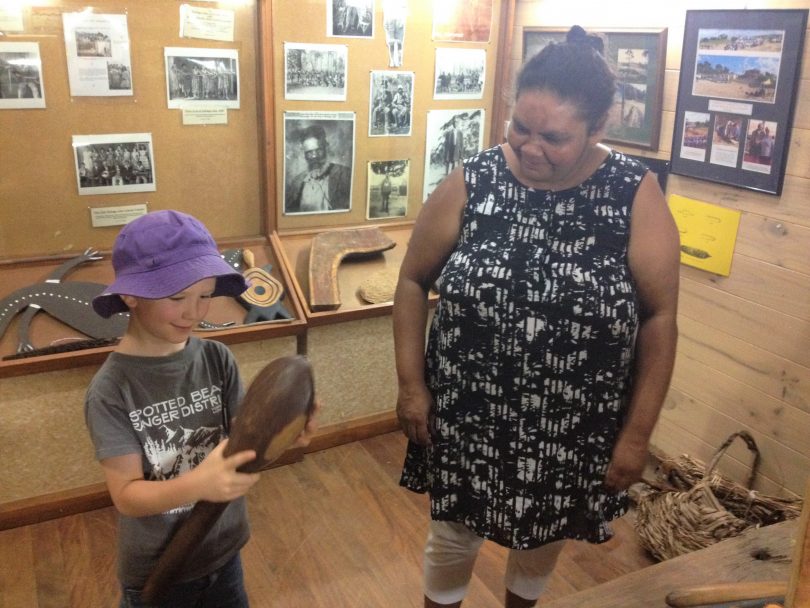
Alison Walker shows Atticus Karuzas, 7, of Bega, items in the center’s museum. Photo: Elka Wood.
“Aboriginal people do like to share our culture,” Maria says “and although I believe we’re a dying race, we’re all about supporting our people. Apart from a few hooligans, Aboriginal people are placid. We’re a gentle race of people.”
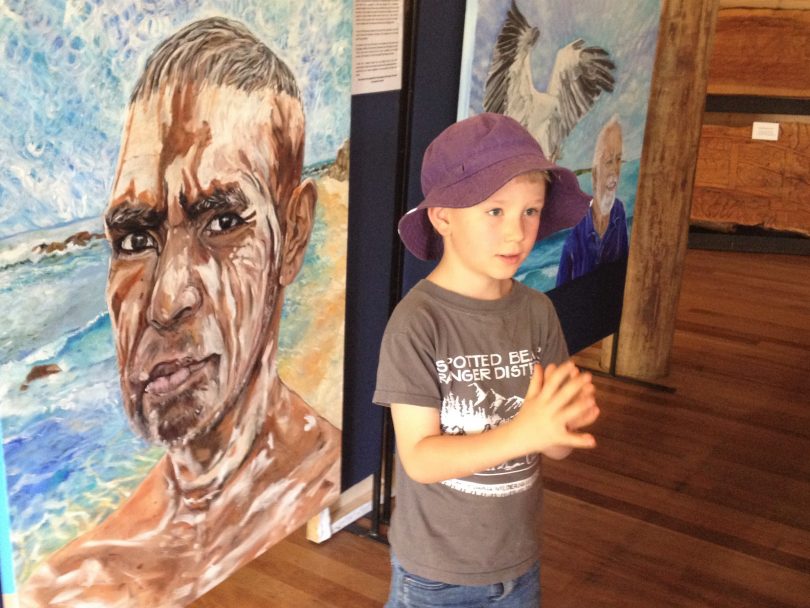
Atticus Karuzas, 7, of Bega, has his questions answered by Alison and Maria Walker. Photo: Elka Wood.
Alison nods. “We need to break that cycle of hatred and fear,” she says of Indigenous/non-Indigenous relations.
She smiles and states the obvious, “we don’t want that.”
Having Umbarra as a place where cultures can mingle is a starting place and the sisters remember a time, about 20 years ago when the centre was thriving.
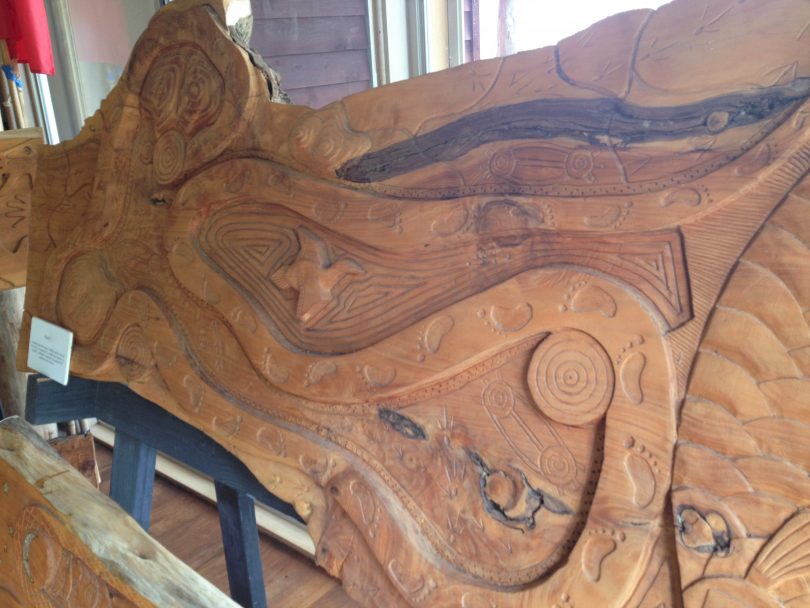
Intricate carved wooden panels on display tell the stories of the Yuin people. The Walkers would like to see the workshop on the Umbarra land used by young men for carving, as it was about 20 years ago. Photo: Elka Wood.
“We used to have a big tall boat and we’d take tours out, and that’s where the young fellas used to do the spear throwing, and throw the boomerang, and it comes back around that curve, see?” Alison says, pointing down the long drive and to a clearing.
As kids play around the building, Alison watches them carefully.
“Just watch out for these fellas,” she calls to them, making the wave of a snake with her hand.
A German couple are leaving, their arms full of colourful postcards of Alison’s art and an information booklet about the Yuin people.
Alison calls after them, “aren’t you happy you came in, darlin’?”
They are, and you will be too. The charm and determination of the Walker sisters are in full force at Umbarra Cultural Center and one can picture the spears and boomerangs soon flying, as they have around Wallaga Lake for thousands of years.
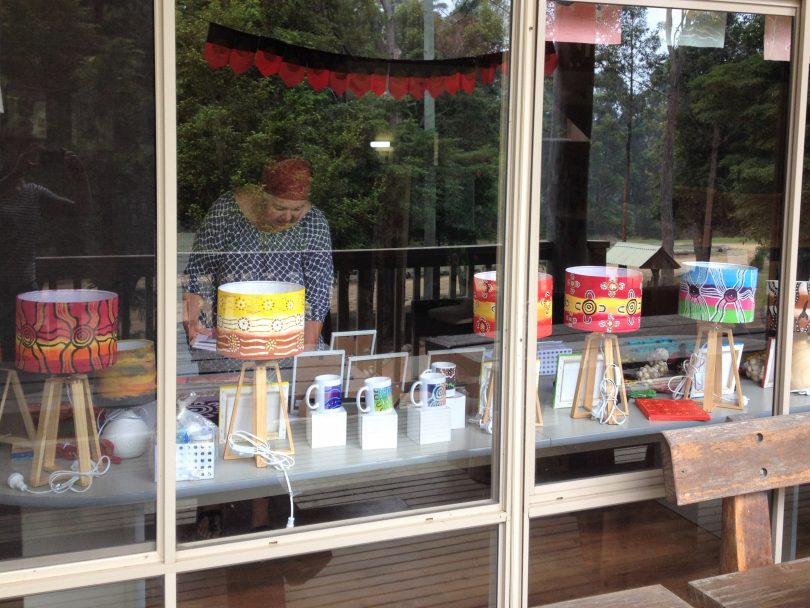
A customer browses Alison Walker’s art at Umbarra Cultural Center over the weekend. Photo: Elka Wood.
Alison and Maria Walker are custodial traditional owners of Gulaga and Biamanga mountains.
Umbarra Cultural Center, 246 Bermagui Road, Wallaga Lake, is open from 10 am to 3 pm Thursday to Sunday throughout the summer.






